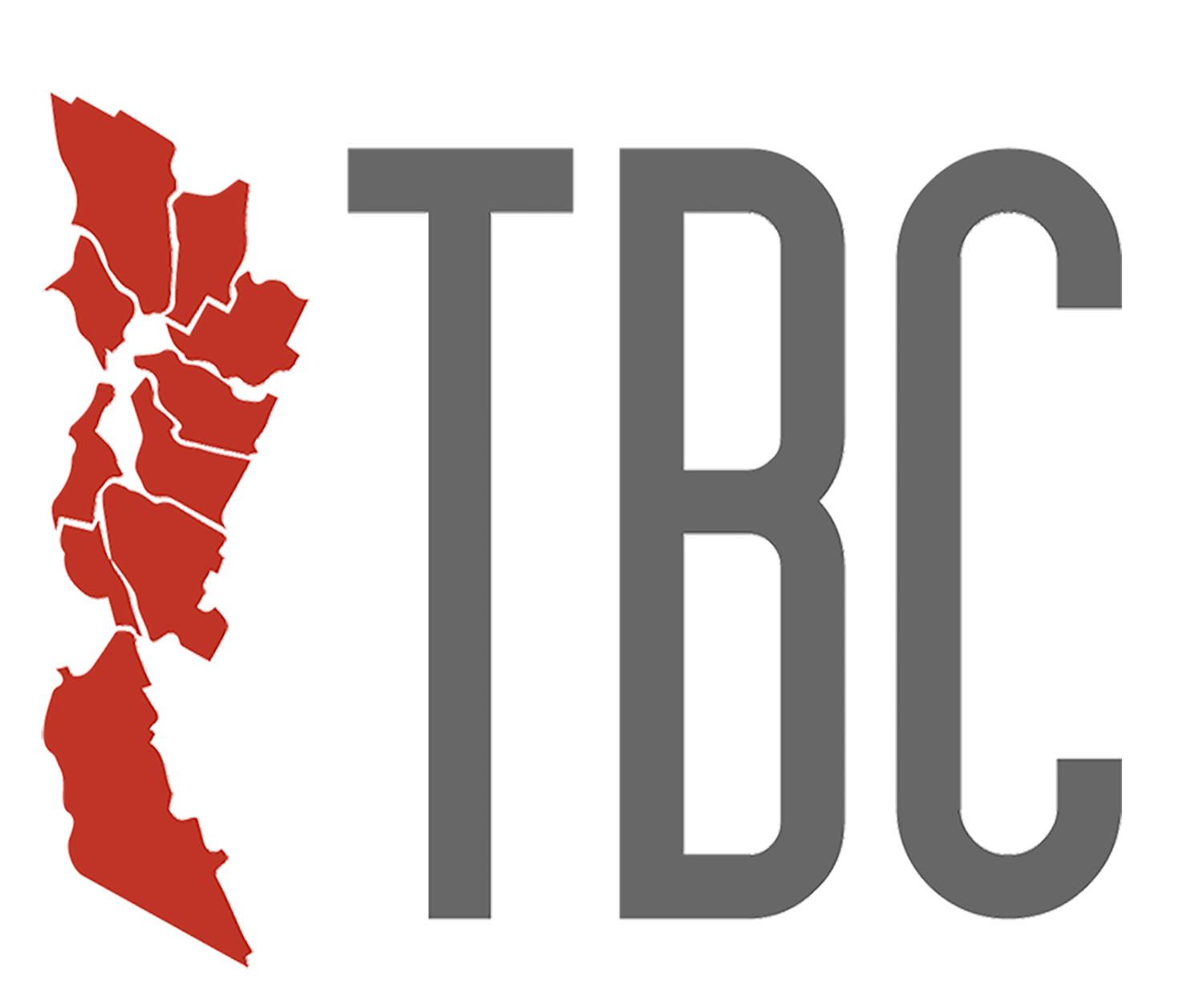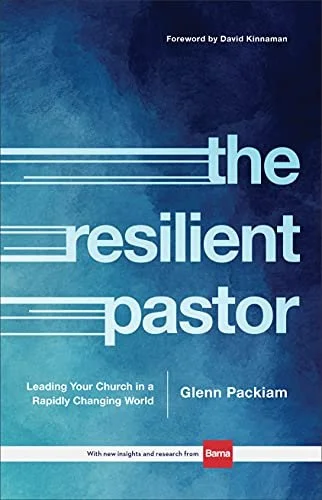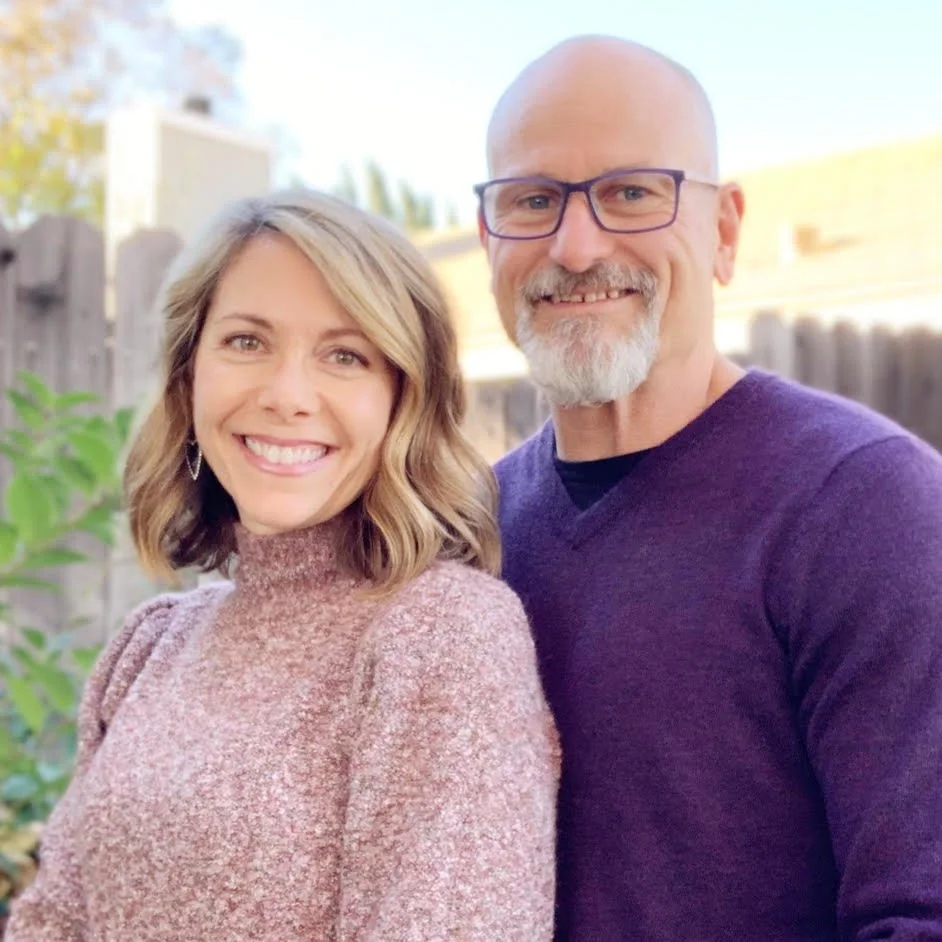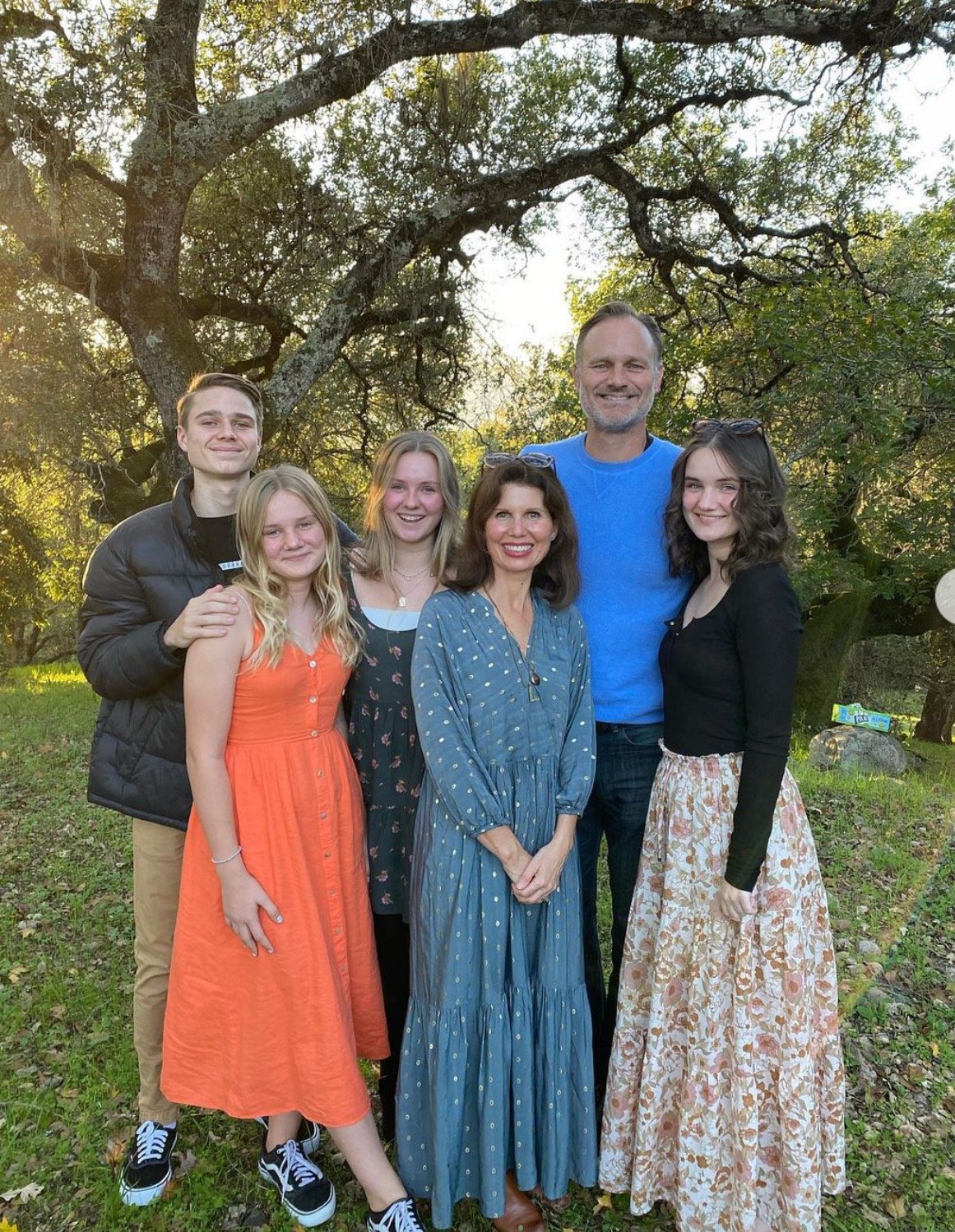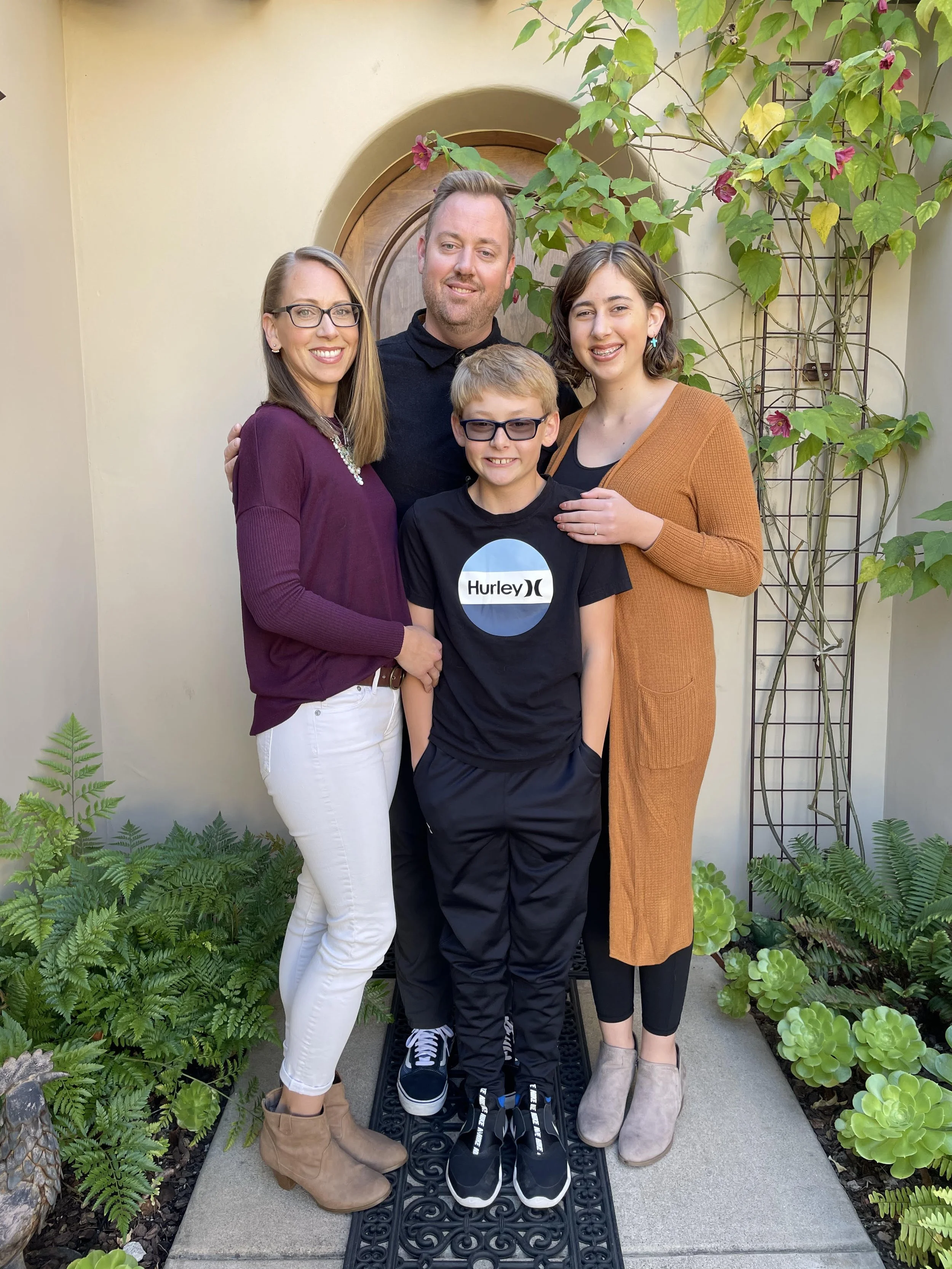Conversations that Matter - Healthy Board Governance
This webinar is designed to empower and equip pastors and their church boards with the knowledge and tools necessary to lead effectively and in a Christ honoring way. Strong, ethical, and visionary church leadership is crucial. This webinar brings together a panel of proven Christ-centered leaders who have excelled in both the corporate and church-based sectors. Our webinar speakers include:
Pat Gelsinger - CEO of Intel Corporation
Pat Gelsinger brings a wealth of experience from the corporate world, having led one of the world’s largest technology companies with a commitment to integrity, innovation, and excellence. He also has board experience from previously serving as an elder of his church.
Nancy Ortberg - CEO of Transforming the Bay with Christ
Nancy Ortberg offers profound insights from her extensive experience in both consulting and church leadership, focusing on transformational leadership and organizational health.
Steve Clifford - Pastor Emeritus of Westgate Church, San Jose
Steve Clifford shares his decades of wisdom from growing and leading a thriving church community, emphasizing the importance of vision, unity, and resilience.
Mark Russell - Chairman of the Elder Board, Westgate Church
Mark Russell provides a critical perspective on the role of church boards, highlighting practical governance strategies and the significance of a spiritually grounded approach.
Conversations that Matter - Cultivating Civility in an Election Year
What does it look like to engage in politics with both compassion and conviction? Join us to learn innovative ways to be constructive policy influencers while demonstrating the importance of our faith.
Conversations that Matter - Post Pandemic Marketplace Ministry
The Pandemic drastically changed where, when, and how we work. The challenges of the last two years provide a chance to rethink work and how we approach it as followers of Christ. Tune in to an encouraging conversation with Denise Lee Yohn - Director of Faith & Work Journey, and Roy Tinklenberg, Co-Founder of Faith & Work Movement to discuss how Church leaders can approach the question, " What does Marketplace Ministry look like post Covid?"
Aslan Housing Foundation: Making a home for ministers in the Bay Area
As mortgage rates continue to increase the housing market is softening in most parts of the country. However, here in the Bay Area where the median sales price for a single-family home is $1,250,000 even with a slight dip, homeownership is out of reach for many including those working in full-time ministry. The average rent for a two-bedroom apartment here is between $3000 and $4000, also challenging for many pastors and church staff members.
“The housing crisis here is affecting recruiting and retention in our churches. We need to create solutions to address the crisis to keep our pastors here.” - Nicole Bergeron, president & CEO of Aslan Housing Foundation.
According to Glassdoor, pastors in the Bay area earn an average annual income of $81,049. Input this salary into a home affordability calculator and you’ll find that these pastors can afford a home priced at $388,175. There’s just a handful of homes listed at this price in the region.
“At Peninsula Covenant Church we almost lost two very strategic hires who had been recruited from out of state because of the cost of housing here,” Bergeron recalls. “A group of us lay folks at the church decided to work on helping PCC figure out an approach to housing the staff.”
Bergeron and Aslan co-founder Doug Morton decided to be the change they wanted to see and founded Aslan in 2018 in response to the housing crisis and its impact on PCC staff members.
Naming the organization Aslan was strategic as Bergeron explains, “Of course, Aslan is the Christ figure in the Narnia stories. We were sure the Christian community would recognize this evocative name. We adopted it because of Aslan’s benevolence, fierceness, and wisdom. To be operating in this kind of market we need to be wise, to be discerning, to be fierce, and to be ready to pounce.”
As a first step, we created criteria to prioritize staff needs. Then we decided to build.an equity share for the most senior staff at PCC who met a criteria the church had developed. “We found this to be a hard target for someone to actually shoot an arrow at,” says Bergeron. “So, we decided to instead build an inventory of homes to rent at below market prices. We own a handful of homes seven households occupy right now.”
As the organization evolved, they developed three core actions: coaching, discipling, and solving. “We coach pastors about how to save for housing and how to get the most out of a housing allowance,” Bergeron notes.
“We disciple stakeholders, making sure people understand their pastors’ housing needs. We’ve found that congregations don’t realize just how low a pastor’s pay is and how challenging it is to find affordable housing.
“We’re encouraging people to help by renting their extra bedroom, their ADU (accessory dwelling unit), or if they have a second home, renting that to someone in ministry at a below market price.”
Aslan created Marketplace to match pastoral staff with available housing as Bergeron explains, “If someone has an ADU, a granny unit, a room, or a full home available where a pastor can live at below market rent -- still a fair amount of money -- they can list it on our marketplace.”
The organization is working to solve the housing crisis by managing property. “We property manage homes for Christians who are willing to rent at below market. This doesn’t just solve for the pastors, but it creates a nice way for families to feel good about what they’re doing with a home that’s not their primary residence.”
Recently Aslan was approved as a down payment assistance program with Cross Country Mortgage and Lawyers Title. “We put money alongside the down payment so the pastor can have a small enough mortgage to service,” says Bergeron. “Next, we hope to create a funding pool of equity share dollars where Christian institutions, people with retirement accounts, and high net worth individuals can invest in the California real estate market and bless pastors.”
Bergeron has learned a lot during the past four years and is using that knowledge and experience to consult with several churches both in the Bay area and elsewhere including Washington state and New York. “We can help churches find better housing solutions more quickly because we’re facilitating and scaffolding the strategy.”
Aslan has already helped more than thirty pastors, but Bergeron believes they’re at an inflection point.
“This new down payment assistance program is incredibly exciting. Now anytime some church, pastor, or church investor wants to do an equity share, they don’t have to go it alone. But to scale and make housing solutions affordable for churches, we need philanthropic support and investors.”
Contact Nicole Bergeron, nicole@aslan.org, to learn more about how your church or ministry can partner with Aslan.
Conversations that Matter - The Church and the City
What is the connection between the church and the city? Do you have a vision for the city where your church is located? join An encouraging and practical conversation on why and how to build relationships with your city leaders.
Panelists:
Adam Peacock, Founder, Feathervine,
Brian Leong, English Pastor at Lord’s Grace Christian Church and Founder, Move Mountain View
Paul Bains, Cofounder, Project We Hope, East Palo Alto
Finny Abraham, Local Compassion Pastor at Westgate Church and Executive Director, Coalition Against Poverty - Silicon Valley
5 Ways the Church can Respond to the Mental Health Crisis
Close to 50 million American adults experience some form of mental illness. Two out of five adults in the U.S. report symptoms of anxiety or depression. And there is a worrying uptick in the number of people who have thoughts of suicide. Even before the COVID-19 pandemic, there was an annual increase in the number of incidents caused by psychological distress. The grief, trauma, and physical isolation of the past few years has seriously impacted our collective mental health leading the country into what U.S. Surgeon General, Dr. Vivek H. Murthy identifies as a crisis.
Recently the FCC approved 988 as the 3-digit phone number individuals experiencing a mental health crisis can call for help. While previously those in need might call 911, the goal of the 988 Suicide and Crisis Lifeline is to provide immediate crisis intervention and support from trained professional counselors.
According to the U.S. Department of Health & Human Services, individuals experiencing a mental health crisis frequently turn to a pastor or faith leader before seeking help from a mental health professional. “I’ve been doing ministry for 30 years and I’ve never had to deal with mental health issues like we are now,” says Jesse Cottonham, Director of Life Groups at New Beginnings Community Church, which meets in Redwood City and San Jose.
The NBCC staff began the conversation on how to address its community’s mental health during the pandemic. “Our church suffered so much loss from COVID,” Jesse recalls. “Many in our community are transplants to the Bay Area. Their families are elsewhere, so many people felt isolated. We started addressing mental health based on that, but then things started happening so fast – one event after another. People were coming to the pastoral staff for help, but we’re not therapists. We realized we needed to get some good information from professionals.”
1. Bring in the professionals
“We started a partnership with a family therapist who’s helped us so much,” says Jesse. “She’s worked with us to put together some resources and workshops we use to train our Life Group leaders and our staff on how to recognize signs of mental health concerns in people. She’s shown us how we can address this, how to make sure they’re connected, how to get resources for them, and how to care for ourselves.”
NBCC partners with Dr. Christine Coleman. Shortly after the school shooting in Uvalde, Texas, Dr. Coleman led a bilingual mental health workshop designed to help parents talk to their children about the incident. “Dr. Coleman and I are putting together another workshop to take place this fall that will be even more intentional and focused. The topic will be how to recognize the signs of mental health concerns,” Jesse adds.
2. Ask the congregation what they want.
Members of the NBCC community have been very open in sharing their personal struggles not only with the church staff, but with their Life Group leaders. “We’re asking the congregation what it is they need, what kinds of resources they want us to offer,” says Jesse. “We need to stay in our lane of being spiritual encouragers, not professional therapists. That’s a fine line because we all want to help people and fix everything.”
Jesse has enlisted the help of additional professional therapists to lead new Life Groups. NBCC now offers Divorce Care, Grief Share, and Caring for Nurture, a group for caregivers. The church receives resources, material, and coaching through these national organizations. Jesse explains, “We’re trying to offer different options. If they don’t work for members of our church, we’re asking them why not and then figuring out what might actually fit their needs.”
3. Get creative
Jesse is tapping into the expertise of the partner professional therapists to find creative ways to respond to the community; “we don’t need to reinvent the wheel to address the needs of our congregation, but we’re looking for ideas besides just another support group.”
Several resources are available online, but Jesse is also working with the partner therapists to develop more personalized trainings that will address the specific needs of the NBCC community.
4. Build community
At the beginning of the pandemic, life group pastors from several local area churches formed a group and met together virtually once a month as Jesse explains, “It was such new territory for us. We talked about the issues that were coming up within our Life Groups and shared ideas.”
5. Provide training
Jesse recommends training both small group leaders and church staff to recognize the signs of a mental health crisis. “The more training, the better,” he suggests. “If you can find a professional within your congregation, that’s great.”
NBCC offers Stephen Ministry training for its members. Stephen Ministers provide one-to-one spiritual care for people experiencing difficult life circumstances.
Jesse advises church leaders to develop a mental health response slowly. “The need is great, but don’t rush into it. To do it really well, make sure you have professionals to guide you. This is not a one and done. You’ll have to constantly address mental health. To make sure you’re addressing it the right way, slow down, pray, and wait on God’s timing.”
If you’d like to learn more about upcoming Mental Health Trainings, please email, info@tbc.city
Conversations that Matter - Faith and Work
For many of those attending our churches, work is either the primary place to find a sense of identity and self-worth, or the place to tolerate until something better comes along. How does integrating faith with work lead to a better understanding of the role of the believer in the workplace?
Panelists Dr. David Gill, author of Workplace Discipleship 101, Denise Lee Yohn, Director of Faith & Work Journey, , and Andrew Hoffman, lead pastor at Solano Community Church discuss practical ways that your church can engage your marketplace leaders.
Barna's David Kinnaman - The Resilient Pastor
David Kinnaman discusses some of his learnings from Barna's book, “The Resilient Pastor”, This book is a result of Barna’s two year research project to discover how pastors are doing and to help them move into the future with clarity, resilience and hope.
At the core of a transformed Bay are Healthy Christ Centered Churches and at the Core of Healthy Christ Centered Churches are Healthy Pastors. In this 1 hour webinar, you’ll tap into Barna's research and acquire tools to live and Pastor in a healthy way.
Spotlight: Steve Clifford - With Like Minds & a Common Heart
Steve and his wife Dana have ministered in the Bay Area for thirty years, ten years at Santa Cruz Bible Church and then at Westgate Church, but ministry was not on the radar for this former high school teacher and football coach; “The last thing Dana and I thought was that we’d be working at a church,” Steve recalls. “I had a Master’s in education and thought I’d work in schools for the rest of my life, but when I turned thirty, we sensed that God was asking us to do something else.”
It wasn’t clear what that something else would be until a friend asked Steve to help him with a church in their native Texas. “I didn’t go to church until I was 23,” says Steve. “I’m not really a typical church person, but I told my buddy we’d help him for a couple of years and that was 34 years ago.”
When the Cliffords moved to San Jose it was not yet the hub of technology it is today, but the former farming community was quickly growing and transforming. “I love doing ministry here. With the diversity and the challenge of the cultural mindset, it’s a really fun place to be.”
Building relationships in Silicon Valley
San Jose is the 10th largest city in the U.S. with a population of just over one million people. “It’s very transient here. People come in, work hard, accomplish something, make money, and then leave. That means we work hard to build relationships quickly. The on-ramp for people to get to know us is pretty short.”
Steve realized soon after arriving in 2001 that one church could not make a major impact alone.
“No one church is really going to change the city. There are too many issues, too many people to reach, and too much to do.”
Even though it was challenging, Steve began building a network of pastors. “Very early on I started taking a lunch hour a week to meet with the pastors of other churches. After you do that for a while you find that there’s a network.”
Over the years Steve has built out the network, joining with other local churches on such initiatives as Beautiful Day, an annual service project to Santa Clara County. “The church in Silicon Valley is never going to conform to where we look alike; nor should we. But there can be amazing unity around the Good News about Jesus.”
Approximately sixty pastors are now members of the South Bay Network. After fourteen months of weekly Zoom calls, the group is starting to meet in person monthly once again. “We use a simple outline every time we gather and answer the questions: what are we learning? Where are we struggling? How can we pray?”
Scaling up through TBC
In addition to leading the South Bay Pastors Network, Steve is a TBC founding Board member. “I could barely get my hands around Santa Clara County, but TBC wanted to bring the churches together on a Bay Area scale. That’s a beautiful thing I’d been invited to be part of.”
As one of the two pastors on the Board, Steve is in a unique role; “I serve as a liaison to represent the thoughts and concerns of the local church.”
Passing on 20 years of lessons learned
“I would like to keep doing more of what I get the awesome privilege of doing now,” says Steve. “I’ve endured 20 years in the Bay area. Maybe some of the things I’ve learned along the way I can share with other folks here.
“If there’s a willingness to share the burden with people of like mind and common heart, we could shock the Bay Area out of complacency. The deep conviction that inspires me and fills me with the courage and motivation to keep moving is my deep belief that God is crazy in love with every single person in the Bay Area.”
Spotlight: Phil Lockwood: Prepared by Life to Minister
You could say Phil Lockwood had been preparing for his role as Discipleship Pastor and Chaplain for Living Hope Church in Dixon most of his life. In fact, his passion for the work he does with high school students stems from his own school experience; “The kids I work with are the ones people consider misfits. Nobody wants anything to do with them. I was one of those kids.
“I’ve had severe learning disabilities all my life – reading and spelling and everything. I went all the way through school barely making it. I was made fun of and bullied. That was really painful and traumatic.”
Once he was done with high school, Phil never envisioned going back. His education came elsewhere. “God took me to a different place,” he explains. “I was looking for some way to soothe the pain and that led me down a path to drugs. Because of that lifestyle I ended up doing 13 months in a California state prison outside Tracy and that’s where I had a be still and know God moment.
A Voice and a Platform
“I got into the Word of God and in the pursuit of Jesus I watched the transformation of my life. I’ve never been to seminary, but when I look at my life, I see that God has given me a voice and a platform I really shouldn’t have.”
Phil and his wife, Angela, are founding members of Living Hope Church, but for years his vocation was welding. Almost ten years ago, Phil sensed God was asking him to step away from his work as a welding fabricator. “It felt like God wanted me to step into ministry in our community, but He didn’t reveal to me what I was supposed to do for two and a half years.”
Eventually Phil took on the full-time role at Living Hope Church. He explains just what a discipleship pastor is; “First and foremost for me a discipleship pastor lives a life that really reflects Christ in a way that people want to know, why do you care for me? Why do you love me the way you do? Why do you treat me the way you do? Tell me more so I can be like that.”
Back in the Classroom
Phil returned to the classroom and began mentoring youth at Maine Prairie High School. “It’s the continuation high school for kids just like me.”
Following a tragedy that devastated the school community, Phil was called in to talk to the students. “It takes a lot for these kids to trust people. They didn’t want to talk to any counselors. We started meeting in the park on Wednesdays to process their feelings and emotions and work on a memorial for the kids who’d died. That’s what launched the ministry in the schools.”
Before COVID-19, Phil brought his laptop to school and sat quietly in a classroom waiting for kids to come over and talk. Not only did this become his office three days a week, it established a connection between Living Hope Church and the local schools. As a result, Phil co-founded the Solano County Faith and Education Collaborative with representatives of the school system. “It’s a cool, unique relationship. We don’t have any kind of agenda except to love these kids.”
The Collaborative has worked with the Solano County Office of Education and the Solano County Department of Health and Social Services’s Behavioral Health Division in the development of wellness centers in 45 schools throughout Solano County.
“If a kid is dealing with any kind of issue or they just need a break, they can go to one of these wellness centers,” Phil explains. “The intent is to have a caring adult volunteer from our faith-based group assess whether this kid needs to see a clinician or just needs to have a conversation. The Superintendent told us, ‘your church is actually showing an example of what it is to unconditionally love people you don’t even know.’”
Although pandemic protocols preclude volunteers from coming to campus right now, Phil is focused on preparing individuals to respond to youth mental health crises by recruiting people and organizing their training which includes first aid, mandated reporting, and suicide prevention.
Reaching a Diverse Community
In addition to the outreach to students, Phil is a community chaplain. “Being a chaplain is a way of ministering and meeting the felt needs of people which is what we saw Jesus do all the time. I’m always looking for ways to build bridges. As a chaplain, a lot of times I run into families that have either no faith structure or are of different faiths. They get to see Jesus in some way through me.
“I’ve got a high school education, but God has given me a spiritual gift that enables me to be empathic with people. I’ve leaned into that. As long as I’m faithful to Him and trust Him, He’s going to equip me to do what I’m called to do.”
Contact Phil to learn more about the work he’s involved in, pushing4impact@yahoo.com
Spotlight: Adam Peacocke: An Unexpected Encounter with God
Adam Peacocke served as lead pastor at City Life Fellowship in Santa Rosa from 2002 until 2017. He surprised himself when he made the decision to leave the pulpit after fifteen years to found Feathervine, a ministry focused on uniting local churches in an effort to address some of the big issues facing Sonoma County. Adam explains,
“I had an unexpected encounter with God in prayer and felt a strong call to step away from pastoring. God put a burden on my heart to serve a different type of ministry function -- building bridges to help the church become more present in our community.”
The name Feathervine speaks to the elements of faith and faithfulness. “It’s about seeing the church have roots and wings in our community as a witness to life with Jesus Christ,” says Adam.
It’s been a tough few years for the half million people who live in the region. Many are still reeling from devastating wildfires on top of the challenges of homelessness, crime, and a continuing rise in the cost of living. While Adam, a lifelong Sonoma County resident, has been a community advocate for decades, his hope is that through Feathervine churches will unite to increase involvement. “I had a conversation with the Mayor of Santa Rosa who told me that it’s hard for a municipality to partner with a church or any single organization. But she said it’s easy to partner with ten churches. To me the problem to solve is bringing those churches together.”
Building Trust to Build Unity
“I firmly believe that there’s no substitute for trust as we look to engage our community,” says Adam. “When I was pastoring, I made a point of building trust with the pastors of other congregations here. We often gathered together to serve and worship. We also made our facilities available to other congregations. I got a reputation as someone who was encouraging unity and trust among the churches. Now there’s a core group of close to 50 congregations committed to supporting our community.”
Feathervine has relationships with an additional twenty-five churches, many serving different cultures. “I’m excited about the Gospel’s impact as we build unity across ethnic and cultural lines here in Santa Rosa.”
Right now, Feathervine is focusing on three areas: local schools, foster care, and homelessness, but Adam continues to prioritize trust. “I love goals. I love potential; but I want to move at the speed of trust. I believe that’s the pace where change really happens.”
Roots and Wings in the Community
Twenty churches are working in the foster care system and supporting a number of aligned ministries including CarePortal, Foster the City, and Royal Family Kids.
Feathervine is also focused on supporting elementary schools which are often under-resourced. So far 20 churches are participating in this work. “It’s a strategic opportunity. Kids are at an elementary school longer than the rest of their school time combined. We match congregations with schools near them. There’s a whole host of ways that our churches have been able to creatively step in to be good neighbors to our local schools. It’s as simple as meeting needs where the schools have them.”
Using a model similar to TBC, Feathervine comes alongside churches to support their existing ministries. “We amplify the good works local churches are doing to meet the needs in our community.”
During the 18 months following Sonoma County’s catastrophic wildfires, teams from different area churches visited displaced families occupying FEMA trailers in a Santa Rosa RV park to deliver water and other resources. “Church teams rotate, but Feathervine’s role was to be there every week and help coordinate the efforts,” says Adam. “We were there the day they moved in, and we were there when the last person moved out of the trailers.”
Area congregations are also ministering to the homeless in partnership with the Redwood Gospel Mission. “Churches open their doors and provide meals for up to 40 unhoused people. We don’t just stand behind a table and ladle soup into a bowl. We sit at the table together, share a meal, and get to know each other.”
Admittedly Feathervine has a lot on its plate right now. “I’m trying to keep things as simple as possible,” says Adam. “We’re working on growing and maturing in effectiveness and impact not just in our community, but also in our churches. I want to be the relational bridge, to be the convener and encourager.”
To connect with Adam and some of the work he’s doing in the North Bay, email
Spotlight: Matt Gersonde - Becoming a Refuge for Salinas
Three Churches Unite in Salinas
Churches throughout the Bay Area continue to assess the impact of COVID-19. For many it’s been a challenging time, but Matt Gersonde, Lead Pastor at Refuge Bible Church in Salinas considers it a season of favor. “I realize the pandemic has been one of the darkest times people have experienced, especially church leaders, but for us that hasn’t been the case.”
Before the pandemic Refuge Church, which was planted in 2015 was a church-in-a-box, meeting in a school building. “Some people will do set up and tear down for a long, long time, but I realized quickly that this was not going to be sustainable for us in our city. We wanted a building and in the midst of the pandemic God orchestrated that.”
It began as a conversation between Matt and pastor-friend, David Whittaker, whom he’d met at TBC’s senior leaders gathering in Estes Park, Colorado in May 2019.
“I’d been praying for 4½ years for a church building for Refuge, so when David asked me, ‘what are your dreams for Salinas,’ I told him, ‘God has a building for us.’”
Salinas, the largest city in Monterey County, is 150 years old and had been laid out in the tradition of the 19th century with general stores, churches, schools, and homes. “Churches are placed strategically throughout the city, so when Refuge planted here, I knew God had a building for us that was already built.”
David connected Matt with 70-year-old Petra Bible Church, whose pastor was retiring. “It’s super awkward to engage with somebody relationally and ask, ‘is your church dying? Would you consider giving us your building?’ That’s not the normal M.O.
“I wanted God to show whoever had the building what He was showing me. This was a really great match. We were a younger church without a building. They were an older church with a building. God was in this.”
Petra Bible Church had been assessed and knew it was dying. Their thirty adult members recognized the church was no longer effective for reaching people and willingly joined the Refuge Church congregation to create Refuge Bible Church on July 12, 2020, a year to the day after Matt’s conversation with David.
Becoming a Refuge for Salinas
“Naming a church is such a trip,” says Matt. “I really wanted the name to mean something for the unchurched and the churched. We literally want to be a place of refuge in our city for those who are hurting, lost, and needy. We want people to be aware of God’s presence in a way that they can say ‘I’ve now experienced God as my refuge.’”
This summer Refuge Bible Church absorbed another church that had closed its doors, adding fifty new members to the congregation. It’s not just three congregations meeting at the same time. Everyone is united in mission.
RBC is a church that EQUIPS the saints to know Christ,
CARES for those in need,
and CULTIVATES community across generations,
for the glory of God.
“God has given us a mission -- to reach those who are lost and rescue those who are hurting with the gospel of Jesus Christ. We’re going to continue to go in this direction until we don’t have any more breath,” says Matt.
Networking in Salinas and South County
Matt leads the Salinas and South County TBC pastors’ networks. His vision is specific, “I want the pastors and leaders here to be seen. I want them to know that we appreciate them and the work they’re doing. That’s huge for me.”
Matt points to the importance of relational investment; “When one of us is in need we can call on anyone in the network. That’s where we’ll find someone who understands and can offer some assistance. That’s super important to me.”
Thirty local leaders are in the network. Pre-pandemic they met quarterly. The connections TBC has facilitated along with the resources made available have been powerful for Matt. “I wouldn’t be here without the commitment of TBC to the churches in the Bay Area.”
